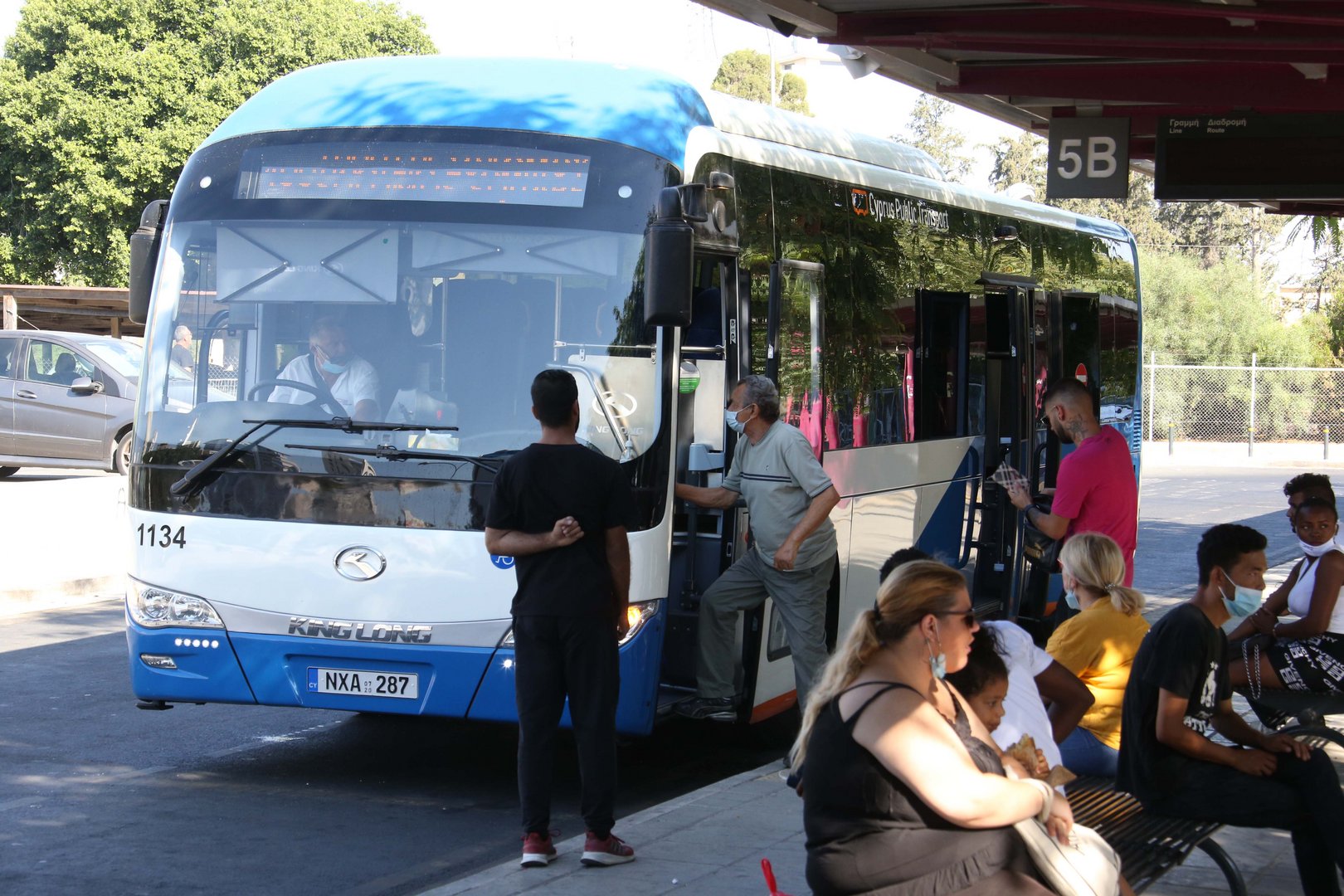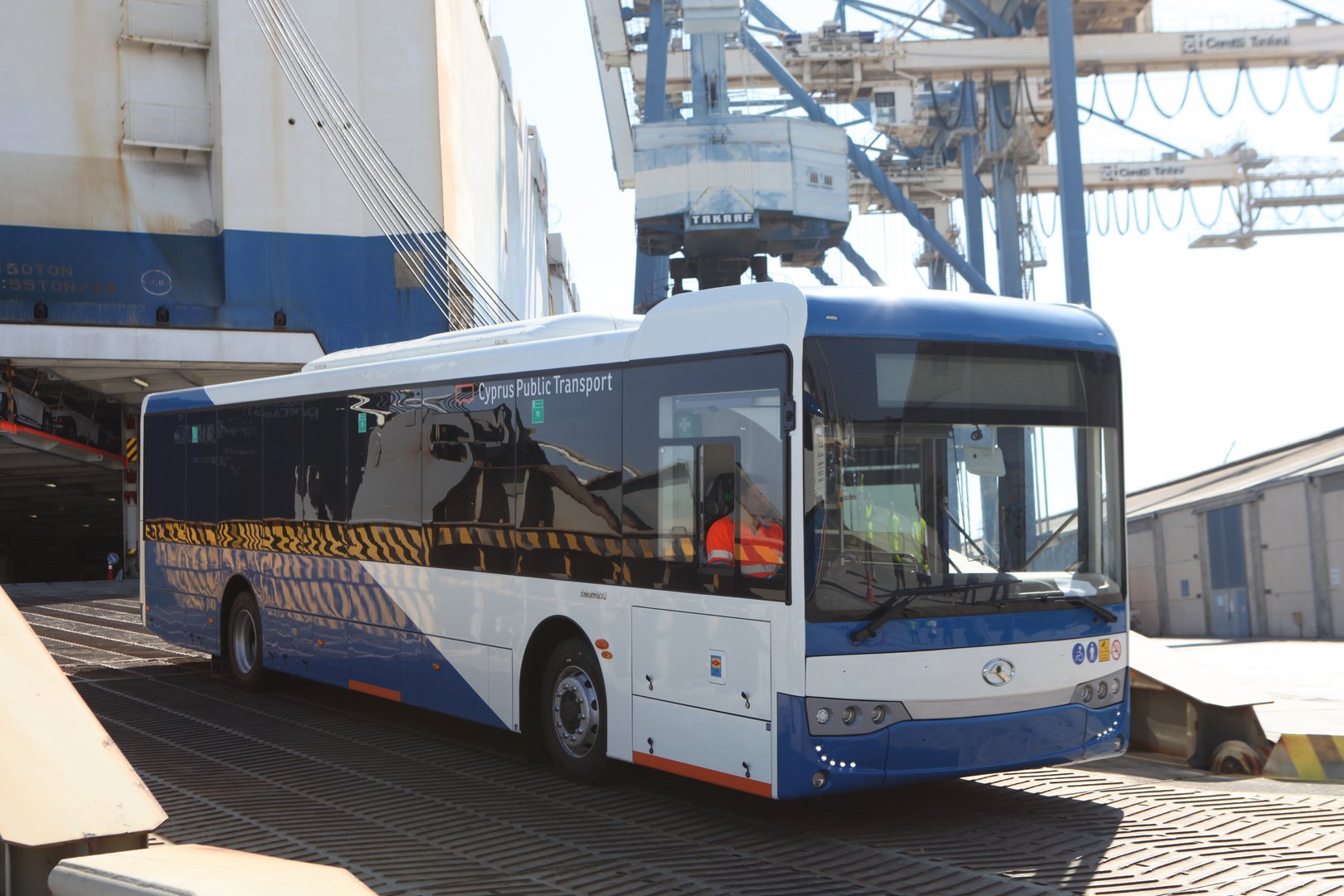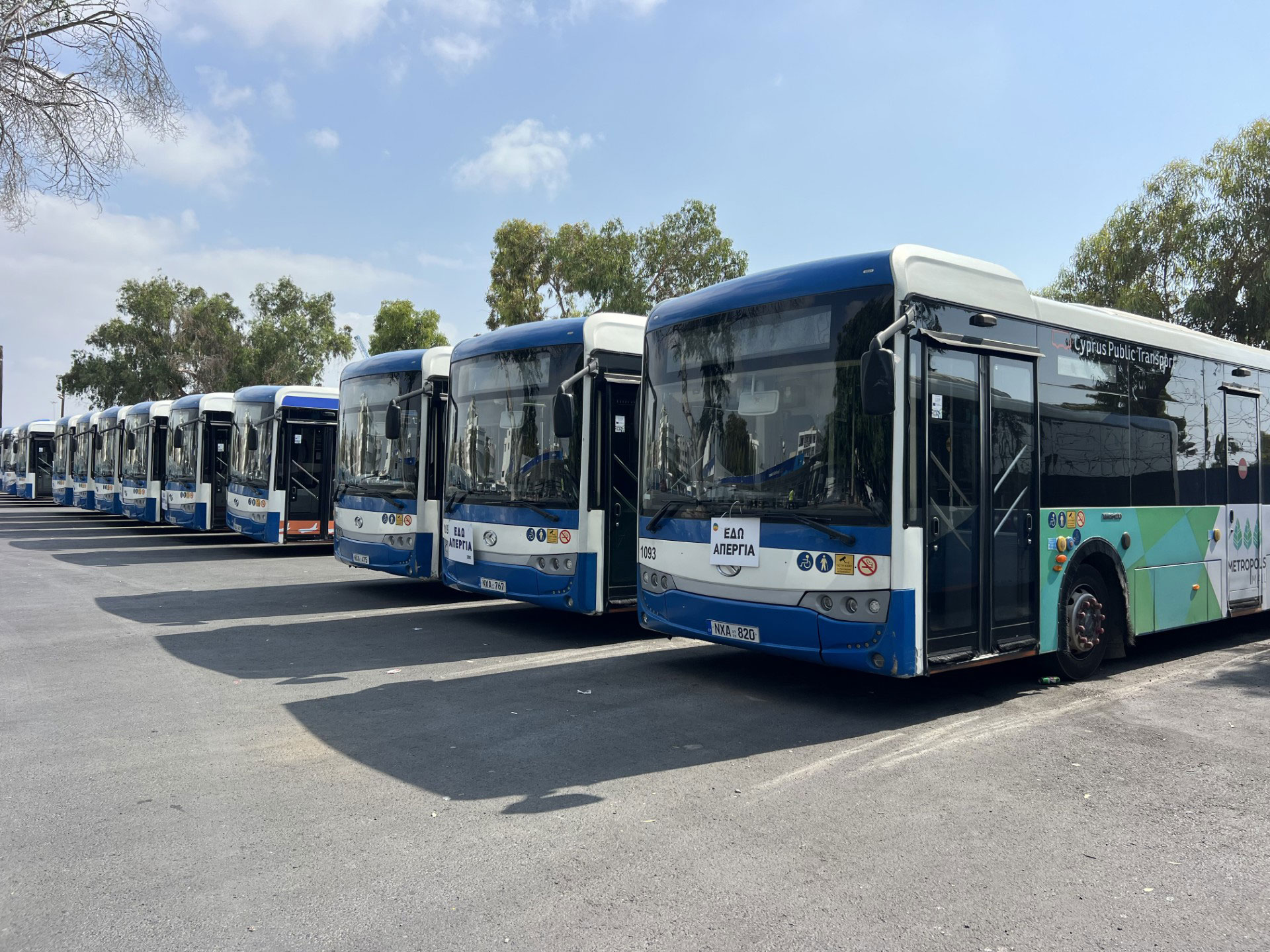Cyprus Public Transport expressed its fury on Thursday over workers in Larnaca’s decision to go on strike on Wednesday evening.
A total of 120 Larnaca-based Cyprus Public Transport employees, including bus drivers and other staff, announced a 48-hour strike on Wednesday evening, provoking an angry response from the company.
It said it “deeply regrets the significant inconvenience and disruption caused to the people of Larnaca” by the strike, describing tit as an “unfounded action” which “impacts thousands of people daily, causing mobility challenges, especially as Larnaca enters the peak summer season”.
It then moved to defend itself, saying that it is “immensely proud of the transformation its drivers have experienced over the past five years” since the company took over the running of buses in Larnaca.
“Employees now operate brand new, air-conditioned buses and benefit from a fundamentally improved working environment,” it added, before disputing the workers’ position that they were being asked to work more than the agreed upon 38 hours per week.
“Our employees are fully covered by the tachograph law, ensuring strict control over working hours, with a standard work week of 38 hours. Drivers receive continuous training, fostering professional growth and job satisfaction,” it said.
It added that bus drivers have seen an average salary increase of “more than 35 per cent” since Cyprus Public Transport took over buses in Larnaca in 2020, and that their annual gross salaries can reach up to €30,000.
This, it said, “places them among the top 40 per cent of workers in Cyprus”.

Returning to the matter of the strike, it said it was “genuinely surprised by recent union claims alleging violations of the new collective agreement”, which trade unions and Cyprus Public Transport had signed in October last year after what they described as “extensive, mediated discussions”.
“All new conditions of this costly agreement have been implemented with integrity and without prior complaints from unions or employees. Crucially, the labour ministry, the only official body empowered to determine breaches, has not reported any violations,” it said.
As such, it said, “the decision by unions to call a strike instead of pursuing discussions on supposed violations is perplexing and unproductive”.
It then insisted that its “vision” is to “continuously improve public transport services and employee working conditions”.
“The company asserts that making unsubstantiated accusations does not pave the way for progress,” it said, adding that its “door remains open for genuine dialogue based on facts and mutual respect”.
Meanwhile, the company’s chief executive officer Julio Tironi published an open letter of his own, expressing his upset at the strike.
He said he was “communicating with you today, not just as the CEO of Cyprus Public Transport, but as a deeply committed partner to the Larnaca community”.
“First and foremost, I wish to express my profound regret for the inconvenience and disruption caused to the people of Larnaca by the current public transport strike. We understand the significant impact this unfounded action has on thousands of people daily, and we sincerely apologise for the mobility challenges you are facing,” he said.
He added, “as Larnaca enters the peak summer season, it is vital that our city showcases its true potential, rather than being overshadowed by the conflict initiated by a minority.
“This situation is regrettable and, in our view, entirely avoidable.”

He said he was “genuinely surprised by the recent claims from the unions” which led to the strike and added that the collective agreement struck in October last year was “proudly signed … following extensive discussions, many of which were held under the esteemed mediation of the labour ministry”.
“The terms of this agreement were highly costly for our company, and the union requirements were extensive. We worked tirelessly to ensure its terms were fair, forward-looking, fully accepted by all parties, and feasible to be implemented, embodying our belief in negotiation and collaboration,” he said.
He went on to say that his company’s vision “remains steadfast”, and that it is “to continuously improve the quality of public transport services for the people of Larnaca, and to further enhance the working conditions of our valued employees”.
“This is a journey we are deeply committed to,” he said.
“However, we must be clear: making unsubstantiated accusations of violations does not pave the way for progress. Every time the unions have sought discussions for improvements, our company has been at the table, ready to listen and to find common ground.”
He then called on “all parties” to “prioritise the needs of the community and return to constructive dialogue”.
“The people of Larnaca deserve reliable public transport, and our employees deserve a stable working environment. We are dedicated to achieving both through responsible and transparent engagement,” he said.
The strike was announced jointly by three trade unions; Sek, Peo, and Deok, which all accused the company of a “blatant violation” of the agreed upon 38-hour working week.
Sek representative Charalambos Avgousti said the company “insists on not implementing” the collective agreement struck in October, and that as such, workers “had no other choice” but to strike.






Click here to change your cookie preferences